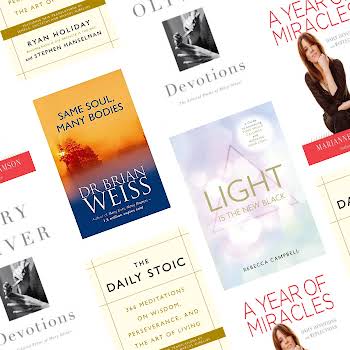‘All of a sudden I was really struggling’: 1 person in Ireland dies from asthma every 6 days
By Grace McGettigan
30th Jan 2020
30th Jan 2020
Asthma costs the state €472 million every year, both in medical costs and days lost from work. Not only that, but one person in Ireland dies from asthma every six days. Here we find out how to treat asthma effectively and what to do should an asthma attack strike
One person in Ireland dies from asthma every six days. Of these deaths, 90% are preventable.
For that reason, we want to help raise awareness for the illness, the treatments available, as well as what to do should an asthma attack strike.
With help from the Asthma Society of Ireland and Cróna Tansey, an ambassador for their ‘Stay Well This Winter’ campaign, we’ve gathered all the information you need to breathe easy this year.
What is asthma?
When people have asthma, their airways become over-sensitive; meaning they react to things that wouldn’t usually cause a problem, such as cold air, sprays or dust. When the airways react to a substance, the muscles tighten up; making them narrow and leaving little room for air to flow in and out.
Not only that, the lining of the airways becomes swollen (just like your nose during a cold), and sticky mucus is produced, which then clogs up the breathing tubes.
While some children lose their symptoms as they grow older, asthma is a chronic, incurable disease, meaning symptoms can come back later in life.

Almost half a million Irish people have it
Teacher Cróna Tansey is just one of more than 470,000 people with asthma in Ireland. If that number seems high, it is. Ireland has the fourth highest prevalence of asthma in the world.
“I was diagnosed in my early childhood,” Cróna tells us. “By the age of three, I had been in and out of the doctor numerous times needing inhalers and courses of steroids.” Since then, asthma has changed the way she lives her life; from travelling to exercising, even to what she wears.

Managing the symptoms
Most people with asthma are prescribed two inhalers by their GP; one to prevent symptoms, and another to relieve them. These symptoms include wheezing, shortness of breath, tightness or pain in the chest, and coughing.
“It took a while to figure out the correct combination of medicines I need to keep my asthma under control,” Cróna says. “My asthma has worsened over the past couple of years and I quickly realised I’d need to take a preventer inhaler full-time.
“I was prescribed steroids and needed my reliever inhaler several times a day…”
“I’ve tried three different preventer inhalers and have finally settled on one that works best for me. I take one dose of my preventer inhaler in the morning and one dose before I go to bed, and I always carry a reliever inhaler wherever I go.”
Allergies, and cold weather
Asthma is often linked with other allergies such as hay fever and eczema, and “I have all three,” says Cróna. “I use a sinus rinse for allergies and sinusitis; and in the summer months, I take an antihistamine every morning to combat hay fever symptoms.”
In the summer, she follows the Asthma Society’s pollen tracker on their Facebook page, which helps her to prepare for the day ahead. “I’ve noticed some places can flare up my asthma symptoms more than others.
“I went to the Gaeltacht on Inis Meain one year, and on Inis Mór the following year as part of my teaching degree. Both islands are beautiful and we had a brilliant time. The only issue was, due to some sort of allergy, I ended up suffering from wheezing and tightness in my chest. On both occasions, I was prescribed steroids and needed my reliever inhaler several times a day.”
 Cróna, all wrapped up, with her boyfriend at a rugby match
Cróna, all wrapped up, with her boyfriend at a rugby match
Beyond medication, there are other ways for people to manage their asthma symptoms. Dust and cleaning products can make it difficult and painful to breathe, so Cróna says, “I have a mask to wear when I’m dusting, vacuuming, or in a place that has lots of dust or mould.
“I also use vapour rub under my nose, on my chest and on my feet before going to bed when I am very chesty or congested,” she adds. “This really helps.”
Asthma is particularly difficult in the winter due to the drop in temperature and the risk of infection. “I, like many other asthmatics, have to make a conscious effort to prepare myself for winter each year. I get the flu vaccine as soon as possible; I take a multi-vitamin, and I invest in a good scarf and coat that will cover my nose and mouth in cold weather.”
Doing exercise
“Growing up, I always had trouble with running outdoors in the playground. My throat and chest would be so sore and cold, and eventually, I would have to stop and take a break. At the time, I didn’t understand these were asthma symptoms; I felt I was just less physically fit than the others.”
Cróna goes on to say how important it is to tell any coaches or fitness instructors you have asthma; adding to always have an inhaler with you in case you need it. “Exercise absolutely triggers asthma for me; I avoid doing exercise outdoors as it really isn’t worth the discomfort. I know this isn’t the case for all asthmatics though; everyone has their own individual triggers,” she says.

Air pollution
Cigarette smoke and car fumes (indeed, any type of fumes) can trigger asthma symptoms too. “My asthma caught me by surprise last summer as I was leaving a Billy Joel concert,” Cróna explains. “There were two ladies walking ahead of me who had lit up a cigarette. I must have inhaled a lot of the smoke because all of a sudden I was really struggling with coughing and tightness in my chest.
“I don’t have access to a medical card and the medicines are not subsidised in any way for me.”
“We got past them and I stopped to take my inhaler. The ladies came over at this point and were so concerned; they really wanted to make sure that I was okay. Of course, it was totally unintentional on their part and nobody is to blame in this situation, but it’s a good example of how people with asthma need to be more aware of their surroundings – as well as how important it is to have a reliever inhaler with you.”
Financially draining
Asthma can also be costly to treat. “Inhalers are life-saving for asthmatics, so it’s vital they have access to their medication. But sometimes it can be so expensive. For me, with two inhalers, a nasal spray, doctor’s visits, antibiotics and/or steroids (should I need them), the costs really do add up. I don’t have access to a medical card and the medicines are not subsidised in any way for me.”
“People who use inhalers in movies or on TV are rarely portrayed as strong, popular or confident…”
Don’t be afraid to shop around. Pharmacies can charge between 20% and 50% mark-up on preventer treatments. Ask your pharmacist what they charge, and shop elsewhere if needs be. There are also some generic medications available. Chat with your doctor about the options available and find a cost-effective inhaler that suits you.
An unfair stereotype
“When I was younger, I felt really self-conscious about taking my inhaler in public. People who use inhalers in movies or on television are rarely portrayed as the most physically strong person, the most popular person or even the most confident person. I think there is definitely a stereotype out there and it can be really hard for young people to take their inhaler in front of others.
“I am very lucky to have a really supportive circle of people around me,” Cróna says. “For that reason, I’m totally comfortable taking my inhaler when I need it and I don’t feel self-conscious about it anymore.”
What to do during an asthma attack
In the case of an asthma attack, follow this five-step rule:
1. Stay calm. Sit up straight – do not lie down.
2. Take slow, steady breaths.
3. Take one puff of your reliever inhaler (usually blue) every minute.
– People over six years of age can take up to 10 puffs in 10 minutes.
– Children under six can take up to six puffs in 10 minutes.
4. Dial 112 or 999 if your symptoms do not improve after 10 minutes.
5. If an ambulance has not arrived within 10 minutes, repeat step three.
Asthma can not be cured, but it can be well-managed. There’s no reason why everyone with asthma can’t live a full and active life; symptom-free. For more information on the ‘Stay Well This Winter… Live Every Breath’ campaign, visit asthma.ie.

Photos: Cróna Tansey via Asthma Society of Ireland
Illustration by Sophie Teyssier for IMAGE Media
Read more: Parents call for ‘living walls’ to be installed in London schools
Read more: Here’s what pollution really does to your skin (and how to combat it)
Read more: #NoSmokingDay: 16 people die every day from smoking in Ireland























